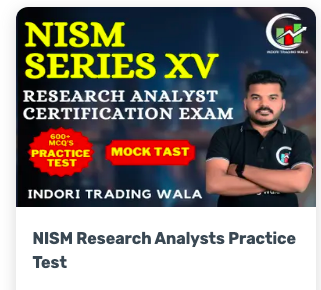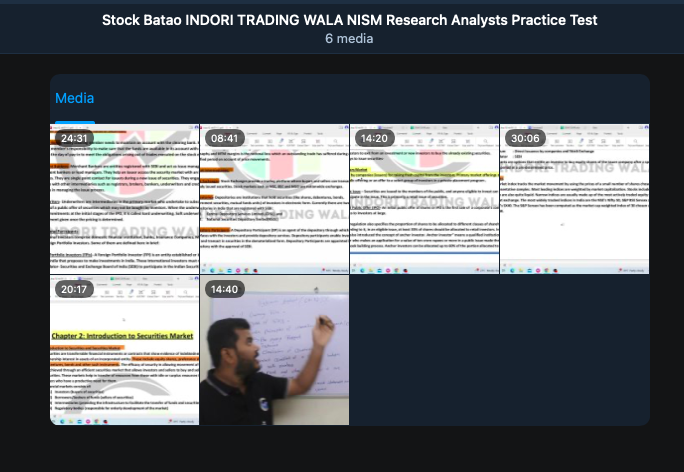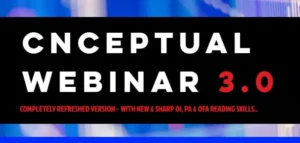Description
Stock Batao INDORI TRADING WALA NISM Research Analysts Practice Test
HD
NISM-Series- XV: Research Analyst Certification Examination Course Introduction To National Institute Of Securities Market National Institute of Securities Markets is a public trust that was established by SEBI to promote the ongoing development in the securities market and offer new pathways for research and investigations to enable transparent and stable functioning of various intermediaries involved in the Stock Market ecosystem. NISM caters the educational needs of various constituencies such as investors, issuers, intermediaries, regulatory staff, policy makers, academia and future professionals of securities markets. The certification aims to enhance the quality of services provided by research analyst in the financial services industry. Research Process 1. Define Research Objective: Clearly articulate the research objective, including the specific investment product, market, or sector to be analyzed. 2. Gather and Analyze Data: Collect relevant data from various sources, including financial statements, industry reports, market research, and economic indicators. Analyze the data using various tools and techniques, such as financial modeling, statistical analysis, and data visualization. 3. Identify Key Research Questions: Based on the research objective and data analysis, identify key research questions that need to be addressed. 4. Develop a Research Hypothesis: Formulate a research hypothesis that addresses the key research questions and provides a clear direction for the research. 5. Conduct In-Depth Analysis: Conduct an in-depth analysis of the research hypothesis, using various research methods, such as case studies, surveys, and interviews. 6. Draw Conclusions and Make Recommendations: Based on the research findings, draw conclusions and make recommendations that address the research objective and key research questions. Investment Strategy 1. Fundamental Analysis: Conduct fundamental analysis of companies, including financial statement analysis, ratio analysis, and industry analysis. 2. Technical Analysis: Conduct technical analysis of stocks, including chart patterns, trend analysis, and technical indicators. 3. Quantitative Analysis: Conduct quantitative analysis of stocks, including statistical modeling, data mining, and machine learning. 4. Risk Management: Implement risk management strategies, including diversification, hedging, and stop-loss orders. 5. Portfolio Optimization: Optimize portfolios using various optimization techniques, including mean-variance optimization, Black-Litterman model, and Monte Carlo simulation. Research Tools and Techniques 1. Financial Modeling: Use financial modeling tools, such as Excel, to build financial models and forecast financial performance. 2. Data Analytics: Use data analytics tools, such as Python, R, and Tableau, to analyze and visualize data. 3. Statistical Analysis: Use statistical analysis tools, such as SPSS, SAS, and Stata, to conduct statistical analysis and hypothesis testing. 4. Machine Learning: Use machine learning tools, such as scikit-learn, TensorFlow, and PyTorch, to build predictive models and conduct data mining. Professional Ethics and Standards 1. Code of Ethics: Adhere to the NISM Code of Ethics and Conduct for Research Analysts. 2. Research Standards: Follow established research standards, including transparency, objectivity, and accountability. 3. Confidentiality: Maintain confidentiality of client information and research findings. 4. Disclosure: Disclose potential conflicts of interest and any material information that may impact research findings. Benefits Of This Course Unlimited Access To All Video Lectures 24×7 Discussion Forum & Doubt Support Watch Video Lectures From Android, iOS, and Web Special Practice Questions Guidance & Mentorship Last-Minute Exam Tips, Presentation Tips, and More! What Will You Get In This Program Complete 13 Chapters Unlimited Access To Pre-Recorded Video Classes MCQs – 650+ MCQs In-Depth Discussion On All Important Concepts Good To Know Info About Video Classes Course Access: You can watch the videos UNLIMITED a number of times. No Cap on views









Reviews
There are no reviews yet